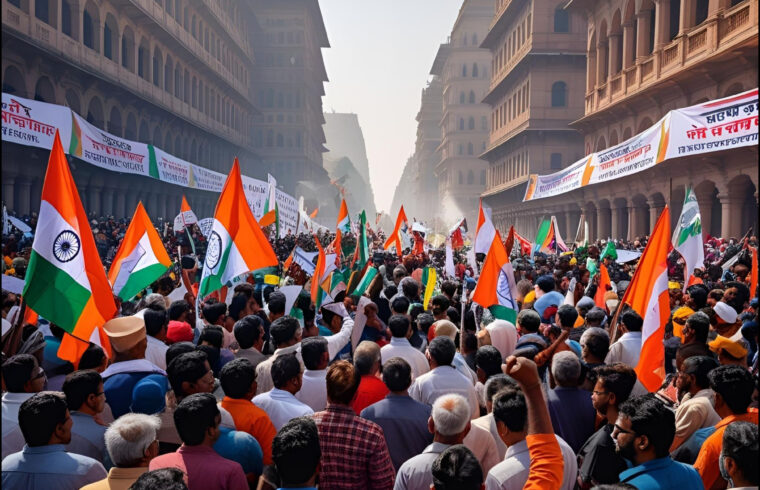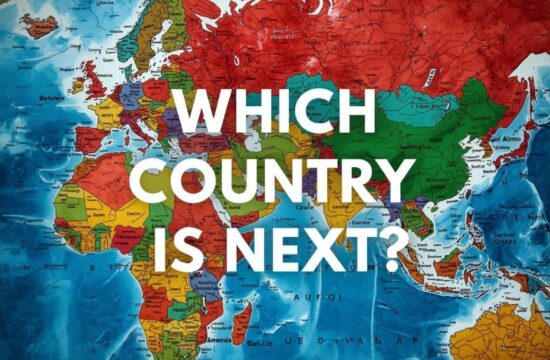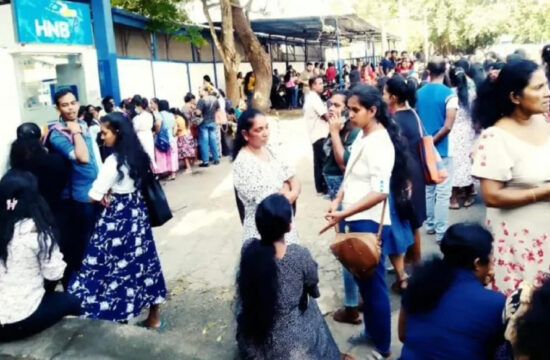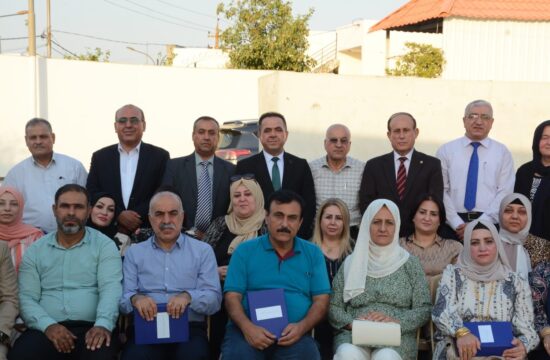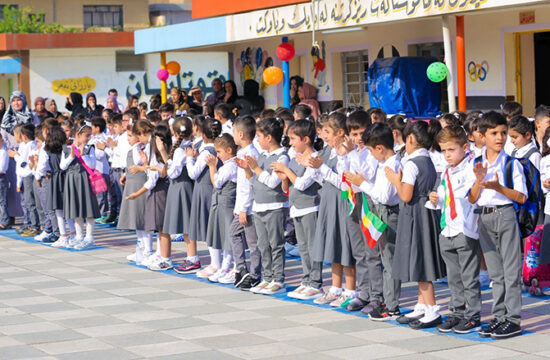Lucknow/INDIA
More than 2.5 million workers from sectors including banking, insurance, postal services, coal mining, highways and construction joined in a nationwide general strike on Wednesday, 9th July 2025. The strike disrupted services across the country. A forum of 10 central trade unions and their associates had called for the strike, termed as ‚Bharat Bandh‘,(India on strike) opposed what they describe as anti-worker, anti-farmer and anti-national pro-corporate government policies.
The four labour codes currently under fire include;
1. The Code on Wages, 2019;
2. The Industrial Relations Code, 2020;
3. The Code on Social Security, 2020; and
4. The Occupational Safety, Health and Working Conditions Code, 2020.
Last year, the trade unions forum had submitted a 17-point charter of demands to Labour Minister Mansukh Mandavia. The government has not held the annual labour conference for the past 10 years and continues to make decisions against labour interests. The union’s forum had criticised the government’s four labour codes, saying they weaken collective bargaining, restrict union activities and favour employers under the pretext of ease of doing business.
The trade unions also alleged that current economic policies of India have led to higher unemployment, rising prices of essentials, wage depression and cuts in social sector spending on education, health and basic amenities. These factors have increased inequalities and hardships for the poor, lower income groups and the middle class.
The unions accused the government of abandoning the welfare state model and working in the interests of foreign and Indian corporations, as seen in its policy approach. They have been opposing privatisation of public sector enterprises, outsourcing, contractorisation and casualisation of the workforce.
The four labour codes passed by Parliament are said to suppress trade unions, increase working hours, remove workers‘ rights to collective bargaining and strike, and decriminalise employer.
The trade union’s forum demands the government to address unemployment, fill sanctioned posts, create more jobs, increase MGNREGA (Mahatma Gandhi National Rural Employment Guarantee Act) workers‘ days and wages, and enact similar laws for urban areas. Instead, Unions says the government is promoting the Employment Linked Incentive scheme to benefit employers.
The unions also criticised government departments for recruiting retired personnel instead of providing regular appointments to youth. This policy, seen in Railways, NMDC Ltd, steel and teaching sectors, harms growth in a country where 65 per cent of the population is under 35 and unemployment is highest among those aged 20 to 25.
The Samyukta Kisan Morcha and agricultural workers‘ unions have extended support and plan large mobilisations in rural India.
We hope there will be some positive initiative from government side to take care of Union’s voices.

